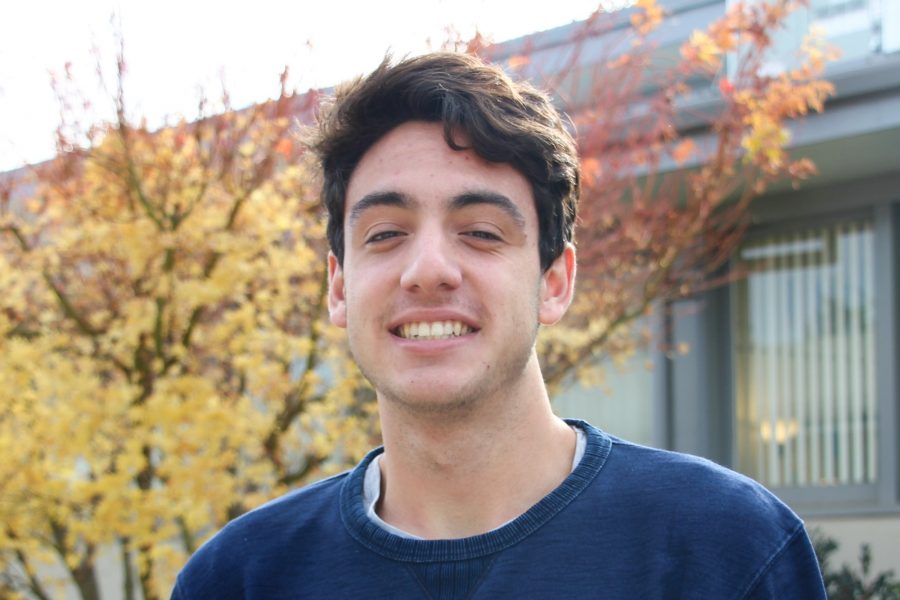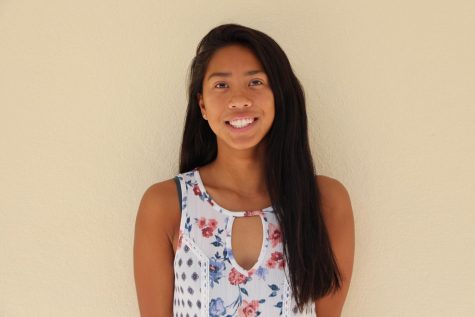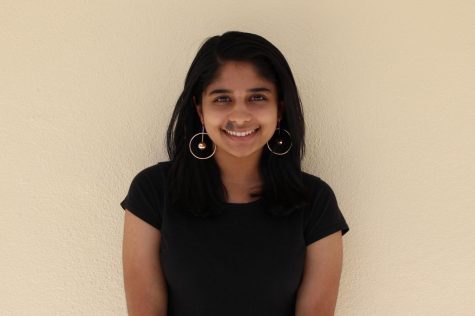Filippo Salvati: Thinking Italian, Speaking English
“They’ve given me a bedroom and a house to stay in for free just because they’re really kind,” Filippo said. “We’re not that close but we just know each other. They were pretty brave to host me without knowing me better as well as maybe my family would know me.”
In Italy, high school is typically five years with the fourth year being very lax, so Filippo took advantage of the opportunity to graduate high school with an American diploma. The community he grew up in — Pavia, a small city south of Milan — also motivated him to participate in an exchange program.
“In Italy, the culture of being in a group like 20 kids and spending time together is really strong and of course Italy is smaller than California so everything is really close and everything is reachable even if you don’t have a car,” Filippo said. “There’s no empty space. Every day, I felt like I was doing the same thing: wake up, go to school, do sports, do homework and meet everyone because I knew everyone in my Italian high school… I was getting tired of that because everyone knows everything about me and everyone knows everything about everyone.”
Moving away from this familiarity, Filippo’s new life in California requires him to have a new mindset to fit in with the social norms of high schoolers in Silicon Valley. Filippo is adjusting to the fast-paced and unpredictable life in which he has learned to value the smallest of gestures from his classmates.
“Coming here just not knowing anyone, you’re going to appreciate more those little things,” Filippo said. “For example, if you’re just walking around school and your friends stop you just to say to you something funny, you don’t have to worry about it because you know it’s going to happen one day. Once you come here, you figure out it’s all these little things like ‘Oh she’s talking to me, oh he invited me to play soccer, oh he asked me if I did my homework.’ For me, if that question was asked to me in Italy, I would answer the same way, ‘yeah.’ But here I think ‘Oh he said that to me so maybe I can try and talk to him, maybe he wants to be friends with me so let’s try if I can make a friendship with him.’”
While Filippo is learning to adjust to American culture, he finds that language barriers between him and others often pose a prob-lem when making new friends.
“I’m a social kid and the easiest way to make friends is to make jokes and be funny together,” Filippo said. “In Italy, I’m one of the funniest kids in my class, but when you change your language, it’s so difficult to translate your jokes because maybe it sounds so cool in your language but once you translate it in your mind, it’s not that funny.”
Yet, in spite of these barriers, Filippo is able to connect with other students through athletics. Along with planning to try out for track and field in the spring, he participated in cross country and made the Los Altos soccer team.
“I think sports are absolutely so important to make friends,” Filippo said. “Sports are one of the easiest way to just meet new people because if you’re in class, you can just talk about class stuff ‘What’s your grade, homework’ something like that. You can’t understand deeply the person. How does he really think? If you’re in a sport, you have more time to spend together, playing something that you like. You have this passion in common so you can talk about that so it’s absolutely a good way to make new friends.”
Along with his goals of mastering English and forming new relationships with people, Filippo sees his year abroad as an opportunity to grow and become more independent.
“Exchange programs are invented also to raise [the students] to be men or women,” Filippo said. “You are far away from your parents and your past life, and it can give you this boost you need to embrace the adult world and be more mature and independent and know what you are doing.”





